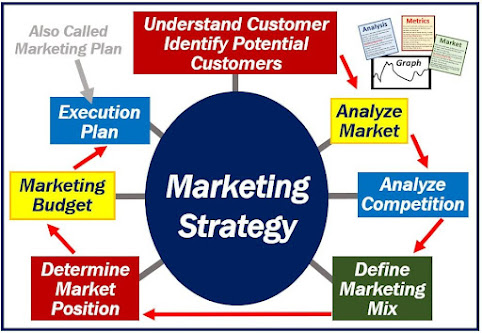The Marketing learning curve
I have many professional friends: Doctors, Lawyers, Accountants, Psychiatrists, Investment bankers, and University Professors. They don't experience this same phenomenon regularly that I and, anecdotally, almost all of my seasoned marketing colleagues do.
We are all too familiar with the trend of average people suddenly becoming medical experts, which seemed to crescendo during the COVID-19 pandemic. I call them 'Dr Googles'. Some 'Dr Googles' will tell you with great authority and powerful gravitas that you should never get vaccinated due to all the 'hidden risks'.
However, my marketing colleagues often endure unfair criticism from those who know little about marketing. This may be because much marketing is on social media, and since most people are active on social media, marketing seems effortless and easy.
I work in Business-to-Business with many salespeople. They are one group in the organizations I've worked for who sometimes think they are marketing 'experts'. Now, I get it. Part of my job is fun. It's one of the reasons I do it. My job must seem like 'a cakewalk' to the average person, especially salespeople. But I have completed an enormous amount of training to get where I am today.
Not only did I spend two years working hard to get my MBA. But over the last fifteen years, I have committed myself to continual learning: Three-month intensive Courses in Digital marketing (with four-hour exams at the end).
I regularly take certificates in anything from Google Analytics, Ad management, and Tagging to HubSpot CRM and marketing automation management; to Html 5, CSS3 & Java, to Demandbase Account Based Marketing platform administration.
At last count, I have nineteen such certifications running up to 2023. I have also spent many hours discussing optimizing campaigns or ads with Google and Linkedin, Zoominfo & Salesforce and many other platform account managers over the last ten years.
I've attended conferences at companies like Adobe or Linkedin on a range of pertinent topics, from marketing strategy to changes in privacy legislation to digital developments. I have put countless hours and massive effort into developing my craft.
In addition, I studied finance, and I worked for over two years as a financial analyst (Bryant Park Capital, Bank of America, MFS Investments), which means that I'm adept at conveying marketing information to financial experts in a way that they understand: this is an essential additional skill you need when working with (predominantly venture capital or Private equity-backed) startups.
But perhaps most importantly I have many years experience working with fast growing technology companies, with senior management, heads of sales, sales engineers and customer success teams. I know what works. And what doesn't.
I have a decent brain and an outstanding overall standard of education, which, along with my experience, has enabled me to develop vital powerful critical thinking skills. I can weigh up, analyze, and synthesize ideas to apply my knowledge to make difficult judgment calls.
That's why I've been trusted to manage Marketing & Ad budgets of over half a million pounds a year ($600K). During my career, I've also purchased and rolled out a £100,000 ($120,000) CRM & Marketing Automation platform.
Yet someone who has worked as a salesperson for a few years, or another marketer with even less experience than that - will, from time to time, think they know how to do my job better (and will of course tell me that!).
And I do understand. To a casual observer, all I do in my job is flick a few switches, send a couple of emails, set up some ads, read a report or two, and hey, job done. It must look so easy!
Sales is an incredibly stressful and demanding job. I know because I worked in sales for five years at the start of my career.
I have an enormous amount of respect for good salespeople. I've worked with many top-class salespeople over the last twenty-five years. Here are a few examples of great salespeople I've worked with over the years:
> The South African who closed our first million pound-a-year deal with Barclays Bank while I worked in Cyber security.
> Or the New Jersey Italian American who closed a whole host of million-dollar-a-year recurring contracts in marketing software with Citigroup, Toyota, Crate and Barrel, Uber Eats, and many others. He was also a brilliant strategist and highly detailed (great with updating the CRM).
> A very young English lady, who had left school at eighteen, who managed to close countless high-value deals for a document management software company I worked at. She was kind and down to earth, with none of the aggressive egos you can sometimes see in salespeople. She now runs a sales team and is still only in her mid-twenties.
> A British Sales Director who is a great individual salesperson and a wonderful manager (often brilliant salespeople struggle when they move to sales management). To top it all off, he has an in-depth knowledge of CRM technology with a thoughtful and methodical approach.
> The Portuguese Sales Engineer who flew from Lisbon to Sydney three times in a year to meet with Telstra, the biggest Australian Telco company. He was pivotal in securing a $5 million annual recurring CPQ software deal, which also incurred $500,000 in switching costs. Soon after, he was hired as a Senior Director at Salesforce - a well-deserved upward move.
I particularly value salespeople, or anyone (including investors), who are curious about marketing. I've worked with some top-flight salespeople who have been actively interested in projects I worked on—but not in a harshly critical way. On the contrary, They sit in on meetings to try to understand the strategy, the technology, and the ideas.
But when a salesperson is staring at a significant deficit in their quarterly sales target (which can be intimidatingly large and often dramatically increased), it's tempting to think, this is marketing's fault. If only sales were running things, it'd all work amazingly.
Nevertheless, a little knowledge is a dangerous thing. In the past, when I saw sales take over marketing, it usually ended badly. Here are a few examples of such disasters:
- There are many very fast gut-feel decisions, such as the decision to have a drinks party after an event made only two weeks before. The marketing team spends all its valuable resources putting together an event doomed to fail.
- Suddenly, pacifying egos or simply driving leads becomes the goal of campaigns instead of the prospect's user experience (the quality of the white paper, case study video, or webinar).
- When Sales took over a company blog, every other story was about a deal the sales team had closed (Lots of likes - mostly internal, few clicks, little engagement, and no leads).
- Salespeople with little knowledge begin to weigh in on Marketing automation. They disrupt campaigns that have been performing well. A few months later, all the metrics are alarming— email opens, clicks, engagement, and leads from email are down, unsubscribes and spam complaints are up.
- All the marketing campaigns start to gravitate towards large face-to-face events. Salespeople usually like events because they are highly visible, a good chance for salespeople to get out and network, and their value is easy to understand. At the same time, Field marketing stops being measured effectively for the same reasons, so it has no idea of the event's ROI.
- Management start to stress out the marketing team. They waste contractors' time on often pointless and/or unfocused meetings. They ask for projects that they then cancel or change halfway through. Over time, the marketing team's morale suffers, and tensions mount.















